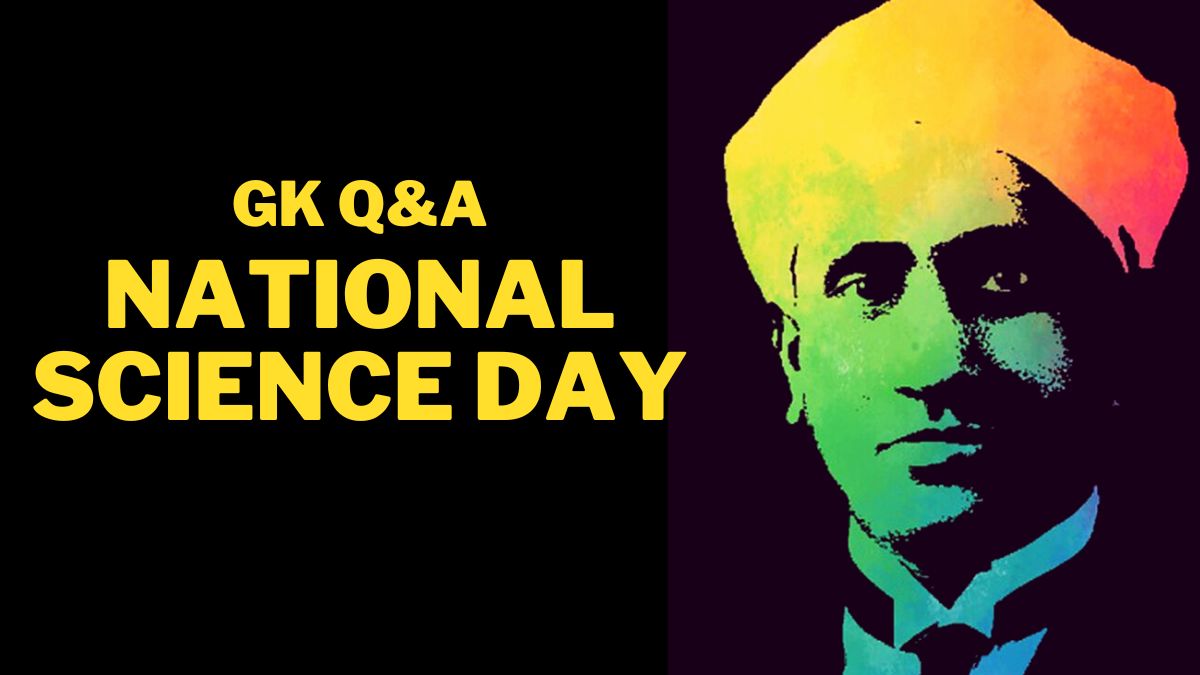National Science Day is celebrated in India on February 28 to commemorate the discovery of the Raman effect by Indian physicist Sir Chandrasekhara Venkata Raman or popularly known as CV Raman.
It was he who discovered the Raman effect on February 28, 1928, for which he was awarded the Nobel Prize in Physics in 1930.
Here is a National Science Day quiz to learn about CV Raman, the founder of the Raman effect, which remains a very essential scientific phenomenon today.
P1. Who founded the Indian Academy of Sciences?
a.Homi J. Bhabha
b.Dr. APJ Abul Kalam
c.Sir Chandrasekhara Venkata Raman
Answer. Sir Chandrasekhara Venkata Raman
Explanation: Sir CV Raman founded the Indian Academy of Sciences (IAS). Bangalore was founded on April 27, 1934. He registered it as a society with the objective of promoting progress and upholding the cause of science, both in pure and applied branches.
P2. Who is known as the “father of the Indian nuclear program”?
a.Narendra Modi
b.Homi J. Bhabha
v.Sir CV Raman
Answer. Homi J. Bhabha
Explanation: Homi Jehangir Bhabha is known as the “father of the Indian nuclear programme”. An Indian nuclear physicist who founded the Bhabha Atomic Research Centre.
P3. Who is known as the “father of the Indian space programme”?
a.Devendra Lal
b.Dr. Manmohan Singh
c.Dr. Vikram Sarabhai
Answer. Dr Vikram Sarabhai
Explanation: Dr. Vikram Sarabhai is considered the father of the Indian space programme. A great institution builder he established or helped establish a large number of institutions in various fields.
Q4. What is CV Raman’s discovery?
a.Raman effect
b.Accordion effect
c.Additive genetic effects
Answer. Raman effect
Explanation: The Raman effect was the discovery that earned physicist Sir CV Raman his Nobel Prize in 1930.
Q5. What is National Science Day dedicated to?
a.Dr. APJ Abul Kalam
b.Vikram Sarabhai
v.Sir CV Raman
Answer. Mr CV Raman
Explanation: National Science Day is celebrated in India on February 28 every year to commemorate the discovery of the Raman effect by Indian physicist Sir CV Raman on February 28, 1928. For his discovery, he received the Nobel Prize in Physics in 1930.
CV Raman Biography: Early Life, Family, Education, Career, Awards and Achievements
Q6. When did Sir CV Raman pass away?
a.November 21, 1970
b.November 21, 1972
c.October 21, 1988
Answer. November 21, 1970
Explanation: Raman died of natural causes on November 21, 1970, at the age of 82, in Bangalore.
Q7. Where was Sir CV Raman born?
a.Karnataka
b.Tamil Nadu
c.Calcutta
Answer. Tamilnadu
Explanation: Chandrasekhara Venkata Raman was born in Tiruchirappalli in South India, Tamil Nadu, on November 7,
Q8. In what year was the Raman effect discovered?
to. 2001
born in 1928
c.1947
Answer. 1928
Explanation: February 1928: Raman scattering is discovered. On a boat trip back from England in 1921.
Q9. When was Sir CV Raman born?
November 7, 1888
b.October 7, 1888
c.August 7, 1888
Response November 7, 1888
Explanation: Chandrasekhara Venkata Raman was born in Tiruchirappalli, South India, on November 7, 1888.
Q10. What is the theme of National Science Day 2023?
a.Future of science, technology and innovation
b.Global physics for global well-being
c.Global science for global well-being
Answer. Global science for global well-being
Explanation: The theme of National Science Day 2023 is ‘Global Science for Global Wellbeing’
LEARN MORE | National Science Day 2023: date, theme, history, meaning, celebration and more
What is the Raman effect? Learn about the theory that won the Nobel Prize in Physics CV Raman
Categories: Optical Illusion
Source: ptivs2.edu.vn
